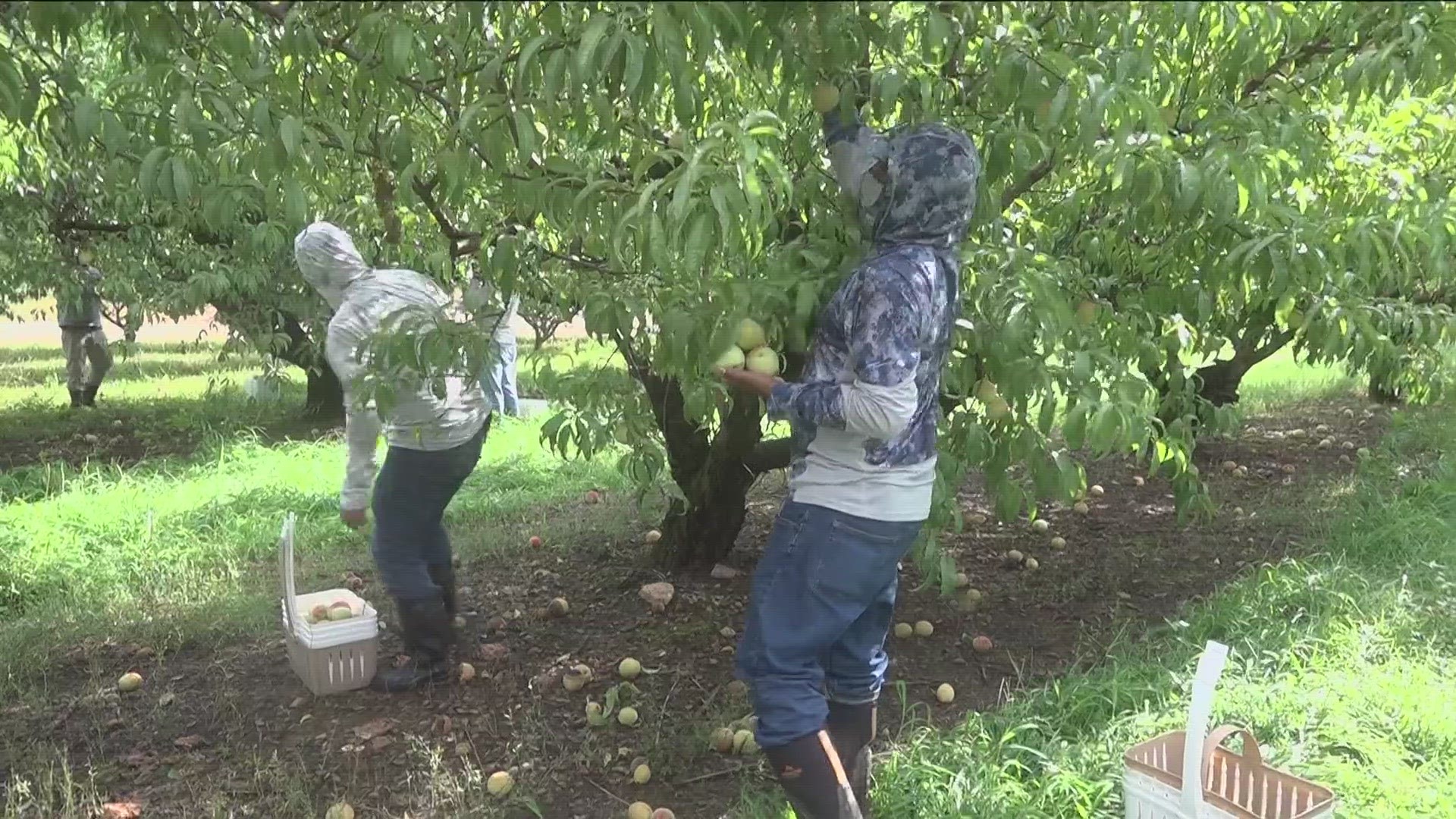ATLANTA — Mental health issues are impacting Georgia's rural farmers as they face generational pressure, natural disasters, and inflation.
According to a recent study from the Georgia Rural Health Innovation Center at Mercer University, nearly 1 in 3 farmers thinks about suicide monthly.
Organizations are investing millions to support Georgia agriculture. Many farmers are still facing fallout from a recent spring freeze.
Six generations of the Echols family grew their orchard.
“I think that’s kind of the biggest pressure, really, that you don’t want to, you know, something that’s been in your family for over 100 years. You want to be able to pass it down,” said Drew Echols with Jaemor Farms.
Echols said a freeze in March crippled his peach crop. The family lost about 70% of their crop.
“It’s a $2 million crop for us here at Jaemor, and to lose 70% of that basically over just a couple nights, it is a tough pill to swallow,” Echols said.
Echols planted tomatoes, corn and pumpkins to make up for the loss, but the constant stress is exhausting his family.
“It’s not the same as peach money, but it, you know, it helps and keeps you busy, keeps everybody employed,” said Echols.
Commissioner Kevin Tanner with the Department of Behavioral Health and Developmental Disabilities said they partnered with the University of Georgia and the Department of Agriculture to find ways to support farmers.
“Farmers are very reluctant to seek help. It’s been ingrained in us that we’re strong, tough people who have to take care of our own issues and problems,” said Tanner.
Earlier this year, they held a farm stress summit to highlight programs and resources. The 988 crisis line now offers a texting option for those hesitant to talk.
They’re hosting listening forums, often led by the rural faith community, to give farmers a safe space.
“I think it’s important that we all understand that it’s okay not to be okay, and it’s okay to ask for help,” Tanner said.
Those experiencing a mental health crisis or need help call the Georgia Crisis and Access Line at 1-800-715-4225. For more information about other resources, click here.

